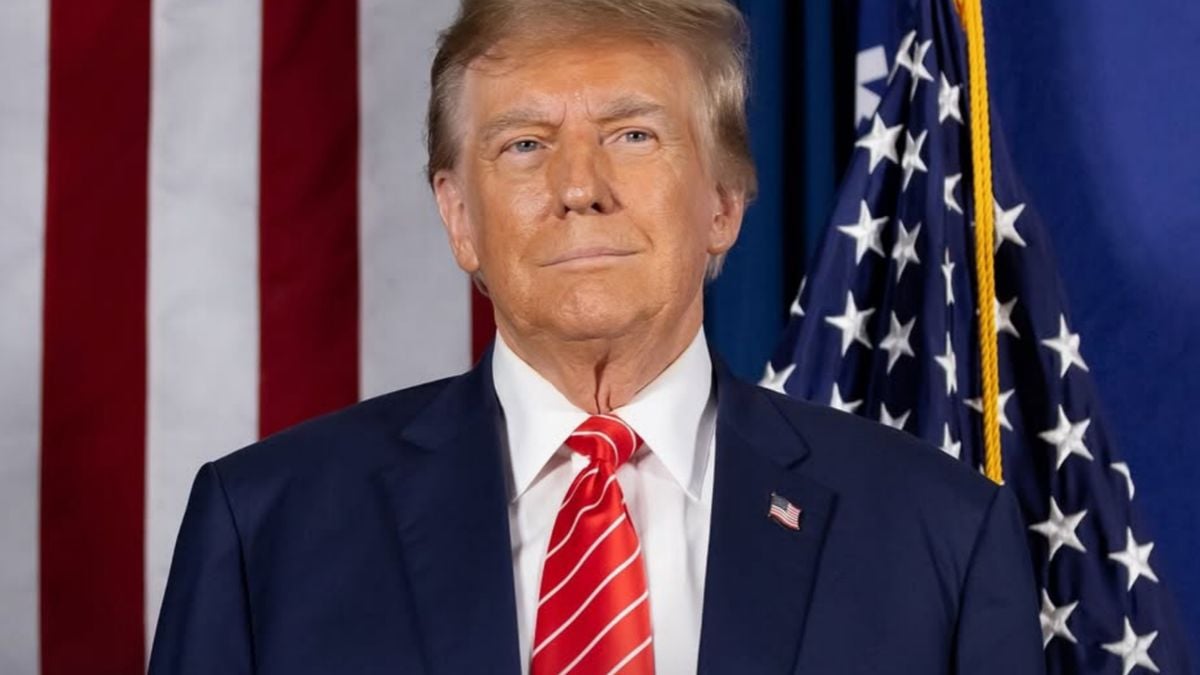Judul : Indonesia Affected by 32 Percent Import Tariffs from Trump Starting August 1, Here's the Impact on Indonesia's Economy
link : Indonesia Affected by 32 Percent Import Tariffs from Trump Starting August 1, Here's the Impact on Indonesia's Economy
Indonesia Affected by 32 Percent Import Tariffs from Trump Starting August 1, Here's the Impact on Indonesia's Economy

PR JABAR - The United States government under the leadership of President Donald Trump has officially implemented a 32 percent import tariff on products from Indonesia. This policy will take effect starting August 1, delayed from the original schedule planned for July 9.
Indonesia Enters the List of Countries Subject to High Tariffs by the US
Indonesia is included in the list of 14 countries that received an official notice from President Trump regarding the implementation of these tariffs. Other countries on the list include Malaysia, Thailand, Myanmar, Laos, Cambodia, Bangladesh, Serbia, Bosnia, Kazakhstan, South Africa, and Tunisia. Even two major U.S. allies, Japan and South Korea, were previously targeted by similar tariff policies.
Trump announced this policy as part of an aggressive strategy to balance the US trade deficit. In a letter uploaded through the Truth Social platform, Trump stated that countries subjected to tariffs should not retaliate with similar tariffs. If they do, the US will impose an additional 25% tariff on top of the existing rates.
Live Tariff to Indonesia and Affected Sectors
White House data states that the US trade deficit with Indonesia reached $18 billion. This means that the value of Indonesian goods entering the US market is much higher than US goods entering Indonesia. This situation is the basis for Trump's imposition of tariffs, as a measure to correct this imbalance.
Some sectors that could be significantly affected by this policy include the textile and garment industry, footwear, rubber products, furniture, and electronic components. Products from these sectors have been Indonesia's main exports to the U.S. market and are highly dependent on low tariffs to maintain competitiveness.
For business actors, it is stated that the new tariffs will hit the competitiveness of Indonesian products, at the same time opening opportunities for competitor countries to fill the market gap. In addition, there is a risk of decreased orders from American buyers who have been loyal to Indonesian products due to price increases caused by additional tariffs.
Other Countries React, Indonesia Still Considering Its Stance
Of the 14 countries affected by this policy, only two have so far managed to negotiate exemptions, namely the United Kingdom and Vietnam. Both are said to have reached a special agreement with Washington to avoid the direct impact of the policy.
Meanwhile, the Indonesian government has not yet submitted an official response or outlined diplomatic measures to be taken. The Ministry of Trade and the Ministry of Foreign Affairs are still conducting internal coordination and consulting with affected industry players, including considering dispute resolution options through the World Trade Organization (WTO).
Some observers suggest that Indonesia should immediately take bilateral negotiation steps, considering that these tariffs not only have economic impacts, but could also weaken diplomatic relations and strategic cooperation between the two countries.
Long-term Risks and Potential Export Market Shifts
International relations observers assess that Trump's tariffs are not only economic actions, but part of a geopolitical strategy to strengthen America's position in the global supply chain. Indonesia must be able to respond with a long-term strategy, including diversifying export markets to other countries such as Europe, the Middle East, and Africa.
Some export associations also proposed that the government immediately open up free trade access to non-traditional countries and strengthen partnerships with alternative markets to reduce dependence on the US. Measures to accelerate trade agreements, such as the Indonesia-Australia Comprehensive Economic Partnership Agreement (IA-CEPA), as well as cooperation with EFTA (European Free Trade Association), are considered strategies worth expanding.
With this development, the national business world is demanding clarity on the government's steps to ensure the sustainability of exports and to anticipate surges in logistics and production costs. The government is also urged to provide stimulus to affected industries, whether through fiscal incentives, logistics subsidies, or assistance in accessing new markets.
Until this policy officially takes effect on August 1st, business actors and observers hope the Indonesian government can act quickly and firmly to prevent a major shock to national exports, which have been the main source of foreign exchange for the country.
Demikianlah Artikel Indonesia Affected by 32 Percent Import Tariffs from Trump Starting August 1, Here's the Impact on Indonesia's Economy
Anda sekarang membaca artikel Indonesia Affected by 32 Percent Import Tariffs from Trump Starting August 1, Here's the Impact on Indonesia's Economy dengan alamat link https://www.punyakamu.com/2025/07/indonesia-affected-by-32-percent-import.html
0 Response to "Indonesia Affected by 32 Percent Import Tariffs from Trump Starting August 1, Here's the Impact on Indonesia's Economy"
Post a Comment